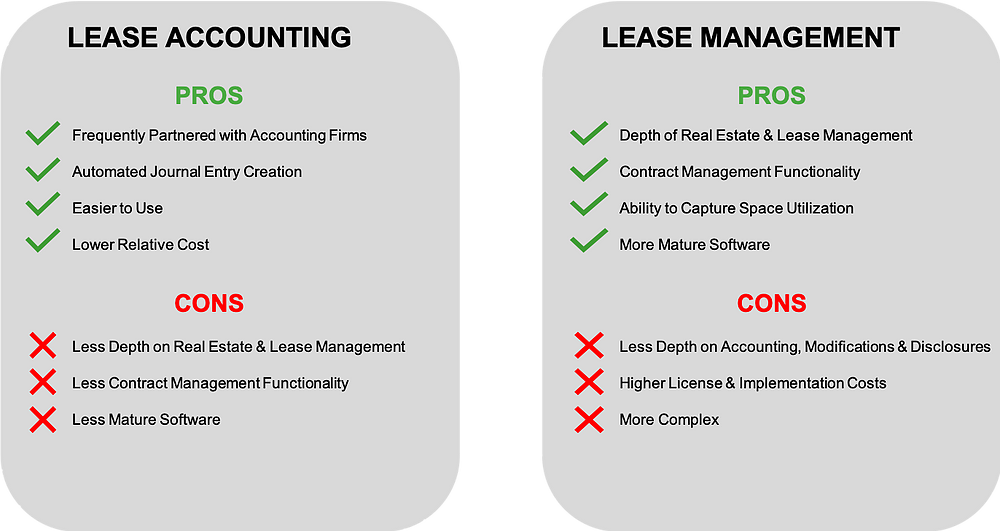Since the FASB, IASB and GASB issued new lease accounting standards, several leasing software tools have announced solutions to support compliance with the new rules. These software products typically fall in one of two categories: lease accounting or lease management. Most tools claim to offer the benefits of both categories, but each product has a primary focus and that’s what determines its classification.
Lease Accounting Software
Lease accounting software, as we know it today, is software that’s main focus is compliance with ASC 842, IFRS 16 and GASB 87. These products are purpose built for these standards under the guidance of Certified Public Accountants. Lease accounting software did exist prior to the new standards, but it was based on outdated standards and therefore required complete redevelopment. Because of this, lease accounting software is all new, and has been recently developed in the last two to three years.
Lease Management Software
Lease management software on the other hand is not new. These solutions have been around for decades. The primary purpose of lease management software is to manage real estate, contracts, lease efficiency, and sometimes niche equipment. Instead of being built through the guidance of CPAs, these products were developed based on the direction of real estate experts. A lot of these legacy products have decided to take on the lease accounting standards because they are in the lease space. However, because accounting is not part of the software’s core competency the lease accounting aspects are lacking in functionality.

Should Companies Get Both Products?
Some companies find the need to get both a lease accounting and lease management tool. This makes sense if your business has a heavy real estate portfolio, and you have an existing lease management tool. In that case it’s best to leave the heavy real estate management functionality to your existing tool and utilize a lease accounting tool to perform the complex calculations, journal entries and disclosure reporting required under the new standards.
For companies that don’t currently have any sort of lease platform, you must prioritize the type of tool that’s most important for your business. Ideally, you’d find one tool to knock out all requirements at once – lease accounting, lease management, property information, maintenance schedules, contract provisioning, etc. The reality is that each tool has its core strengths and if you are resource constrained, you must choose between the two. Because of the looming lease accounting deadline, most companies choose to start with a lease accounting tool and build out a software landscape from there, if necessary.
For more information about types of lease accounting tools, check out this post.
